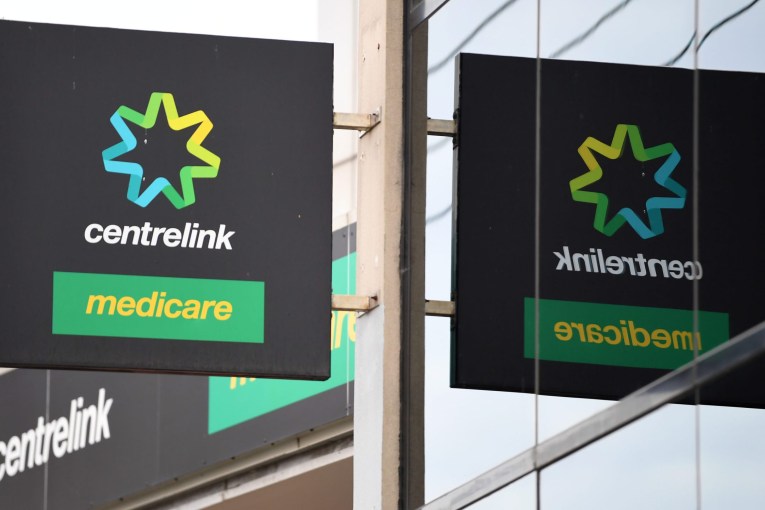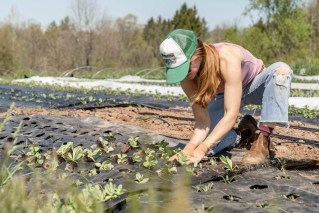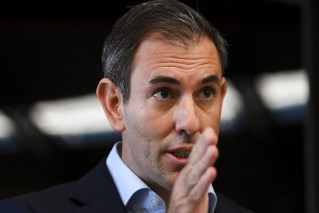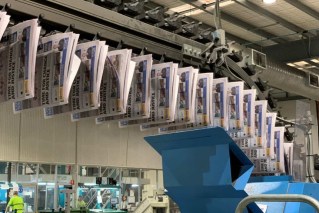Reserve Bank to do ‘whatever it takes’ to prop up economy
The Reserve Bank of Australia is ready to start its quantitative easing policy for the first time after the impacts of the coronavirus and bushfires on the Australian economy.


Reserve Bank Governor Philip Lowe. (Photo: AAP Image/Joel Carrett)
The RBA says it’s ready to adopt its “whatever it takes” promise and implement quantitative easing to underpin the Australian economy.
RBA governor Philip Lowe said in a statement this morning that it “stands ready to purchase Australian government bonds in the secondary market” to support the smooth functioning of that market, which is a key pricing benchmark for the Australian financial system.
“The Bank will also be conducting one-month and three-month repo (repurchase) operations in its daily market operations until further notice to provide liquidity to Australian financial markets.
“In addition the Bank will conduct longer-term “repo” operations of six-months maturity or longer at least weekly, as long as market conditions warrant. ”
The strategy is expected to add significant liquidity to the economy.
The decision had little immediate impact on the markets after a sharp fall on the ASX of more than 7 per cent at the open this morning despite major intervention in the US by the Federal Reserve to cut interest rates to zero and inject liquidity in the market.
The ASX recovered by mid morning to be down 290 points (5.4 per cent), but there were major losses among the blue-chip stocks. Retailers Coles and Woolworths were among the stocks to buck the trend.
It came as KPMG told the ABC that the economy could take a decade to recover from the impacts of the coronorvirus (COVID-19), despite the stimulus package delivered last week by the Federal Government which it said could deliver about $20 billion to the economy over the next two years, if it was delivered efficiently.
The report said the fiscal stimulus package announced on March 12 would soften the blow and help underpin business and consumer confidence.
But Westpac also said a recession was still likely because of escalating impacts from the virus and that national unemployment could top 6 per cent later this year.
KPMG estimated that 36 million workdays could be lost, with an estimated 1.5 per cent hit to productivity and a 0.9 per cent reduction in GDP.
KPMG’s Dr David Rynne said the firm noted that the aim of the stimulus package is to bring forward spending from the future.
“This will mean that from around late 2021, early 2022, the Government will have to address the deficit by increasing taxes or reducing other expenditures and that businesses that have brought forward investments may not be able to do as much later on.”
The ABS released data this morning on short-term arrivals for January which Conus Consulting economist Pete Faulkner said related to the period prior to the Chinese travel ban coming into force.
“Seasonally adjusted data shows year-on-year arrivals fell 2 per cent while from China the figure was down 18.2 per cent while New Zealand (once again our largest market) grew 3.9 per cent.
“The State of Intended Stay data, seen through the Conus Trend series, shows total arrivals up 1.6 per cent year-on-year with NSW faring particularly badly (down 2.7 per cent), Victoria and Queensland doing relatively well (up 3.6 per cent and 3.2 per cent repsectively) while Tasmania continues to storm ahead (up 10.8 per cent).
The Australian Securities and Investments Commission also moved to add stability to the market directing a number of large equity market participants to limit the number of trades executed each day until further notice.
“These directions require those firms to reduce their number of executed trades by up to 25 per cent from the levels executed on Friday. This action will require high volume participants and their clients to actively manage their volumes. We do not expect these limits to impact the ability of retail consumers to execute trades.
ASIC said Australia’s equity markets had seen exponential increases in the number of trades executed, with a particularly large increase in trades last Friday.
“While there was no disruption to market operations on Friday, there was a significant backlog of work required to be undertaken over the weekend by the exchanges and trading participants. If the number of trades executed continues to increase, it will put strain on the processing and risk management capabilities of market infrastructure and market participants.”












